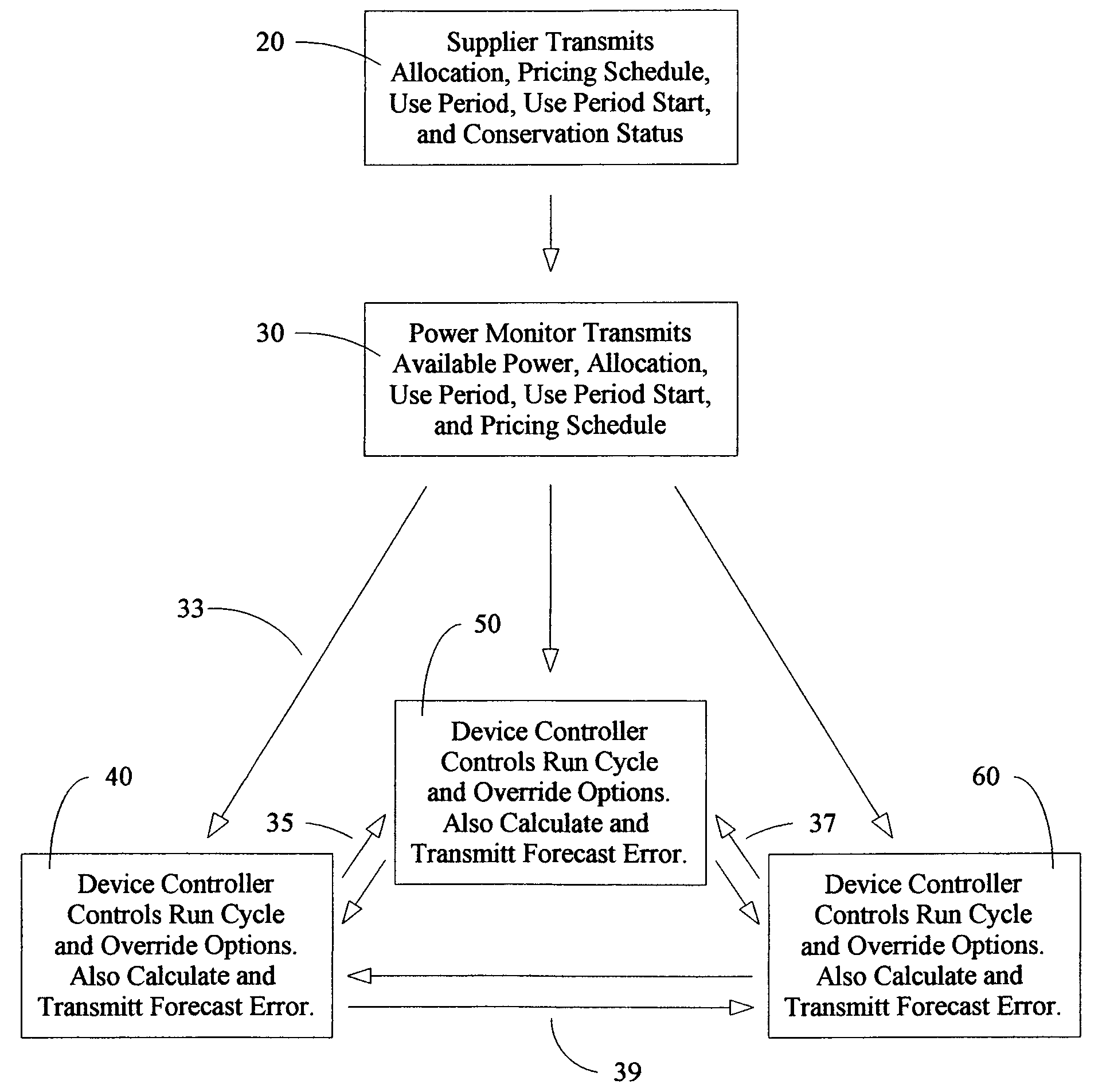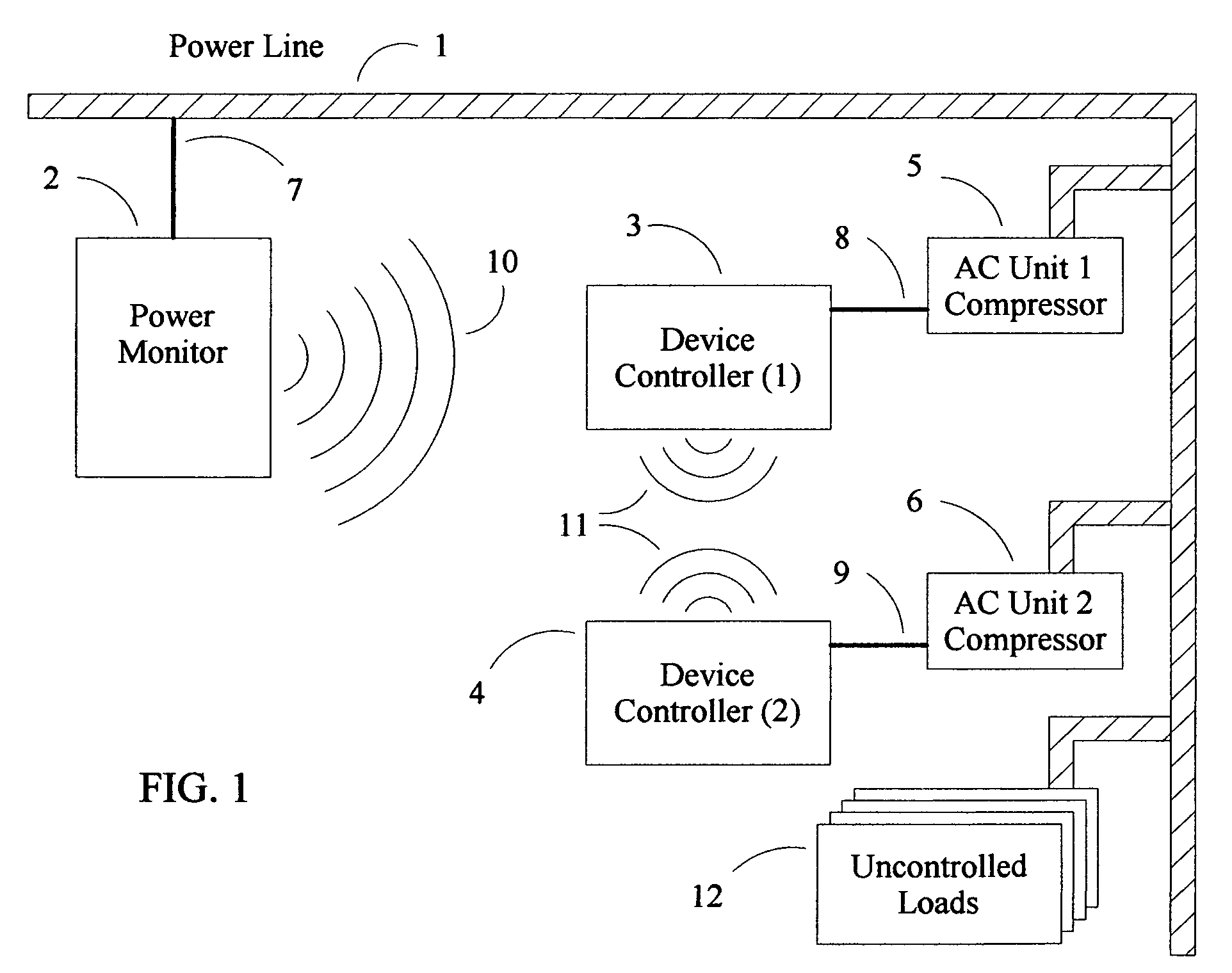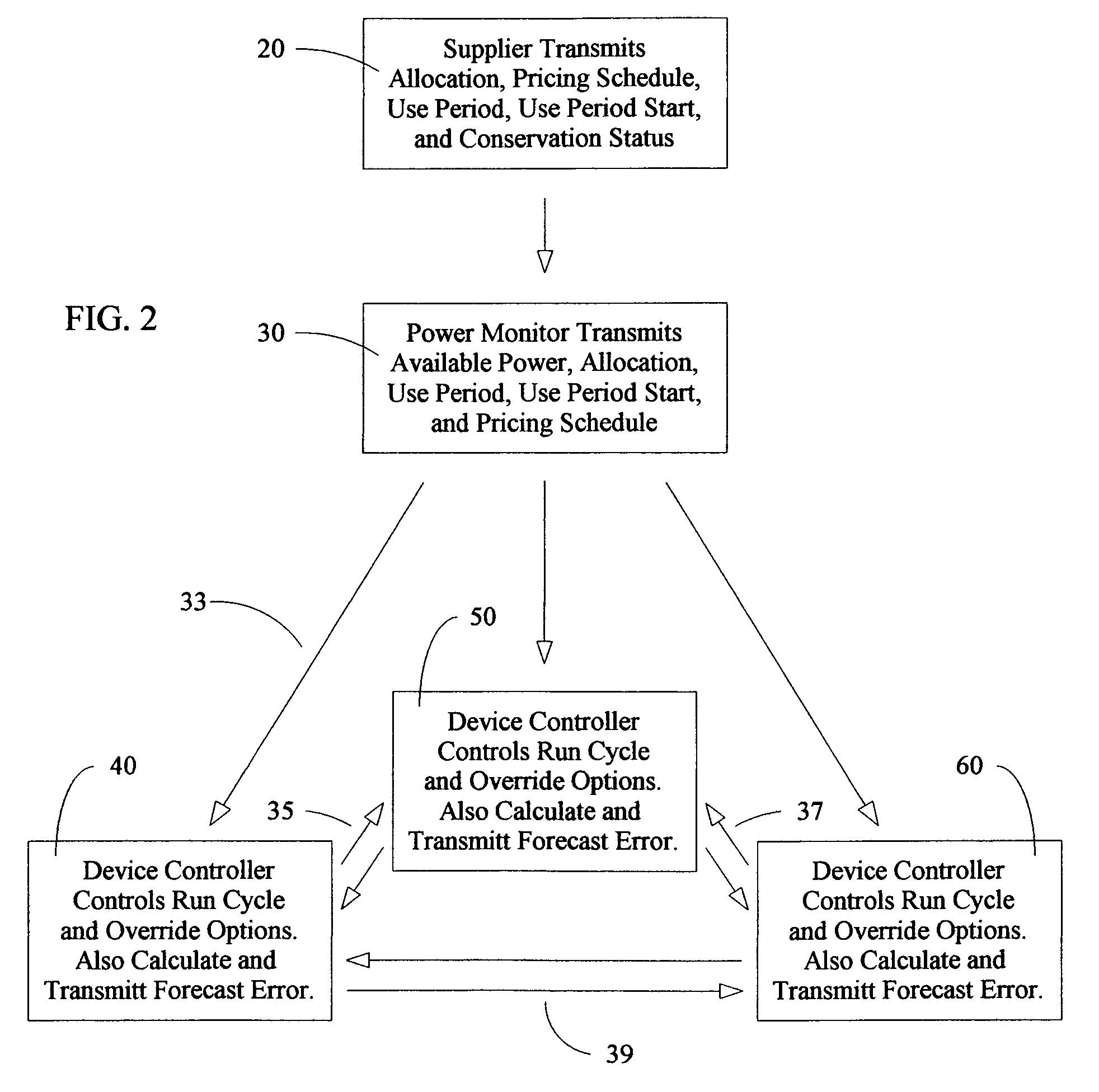System and methods for maintaining power usage within a set allocation
a technology of power usage and allocation, applied in the field of system and methods for maintaining power usage, can solve the problems of increasing the cost of electricity supply during peak demand, increasing the cost of distributed generating equipment, and increasing the cost of electricity supply, so as to reduce the energy consumption, increase the energy, and reduce the energy consumption
- Summary
- Abstract
- Description
- Claims
- Application Information
AI Technical Summary
Benefits of technology
Problems solved by technology
Method used
Image
Examples
Embodiment Construction
[0049]The invention uses a distributed decision process to proactively maintain electricity usage at or below an identified amount for a given time period. FIG. 1 is an example of a preferred embodiment of the invention where a power monitor, item 2, uses a history of power consumption by the total installation on the power line, item 1, and communicates, item 10, an available power prediction to the device controllers in the system, item 3&4. The device controllers determine a portion of the available power prediction that is intended for their devices, in this case air conditioning compressors, units 1 and 2, items 5&6 respectively and controls the duration of the run cycle via items 8&9, respectively for the supported device such that the device consumes the intended portion of the available power prediction. The electric usage of the uncontrolled loads, item 12 in the installation are accounted for in the history of power consumption and the determination of the available power ...
PUM
 Login to View More
Login to View More Abstract
Description
Claims
Application Information
 Login to View More
Login to View More - R&D
- Intellectual Property
- Life Sciences
- Materials
- Tech Scout
- Unparalleled Data Quality
- Higher Quality Content
- 60% Fewer Hallucinations
Browse by: Latest US Patents, China's latest patents, Technical Efficacy Thesaurus, Application Domain, Technology Topic, Popular Technical Reports.
© 2025 PatSnap. All rights reserved.Legal|Privacy policy|Modern Slavery Act Transparency Statement|Sitemap|About US| Contact US: help@patsnap.com



